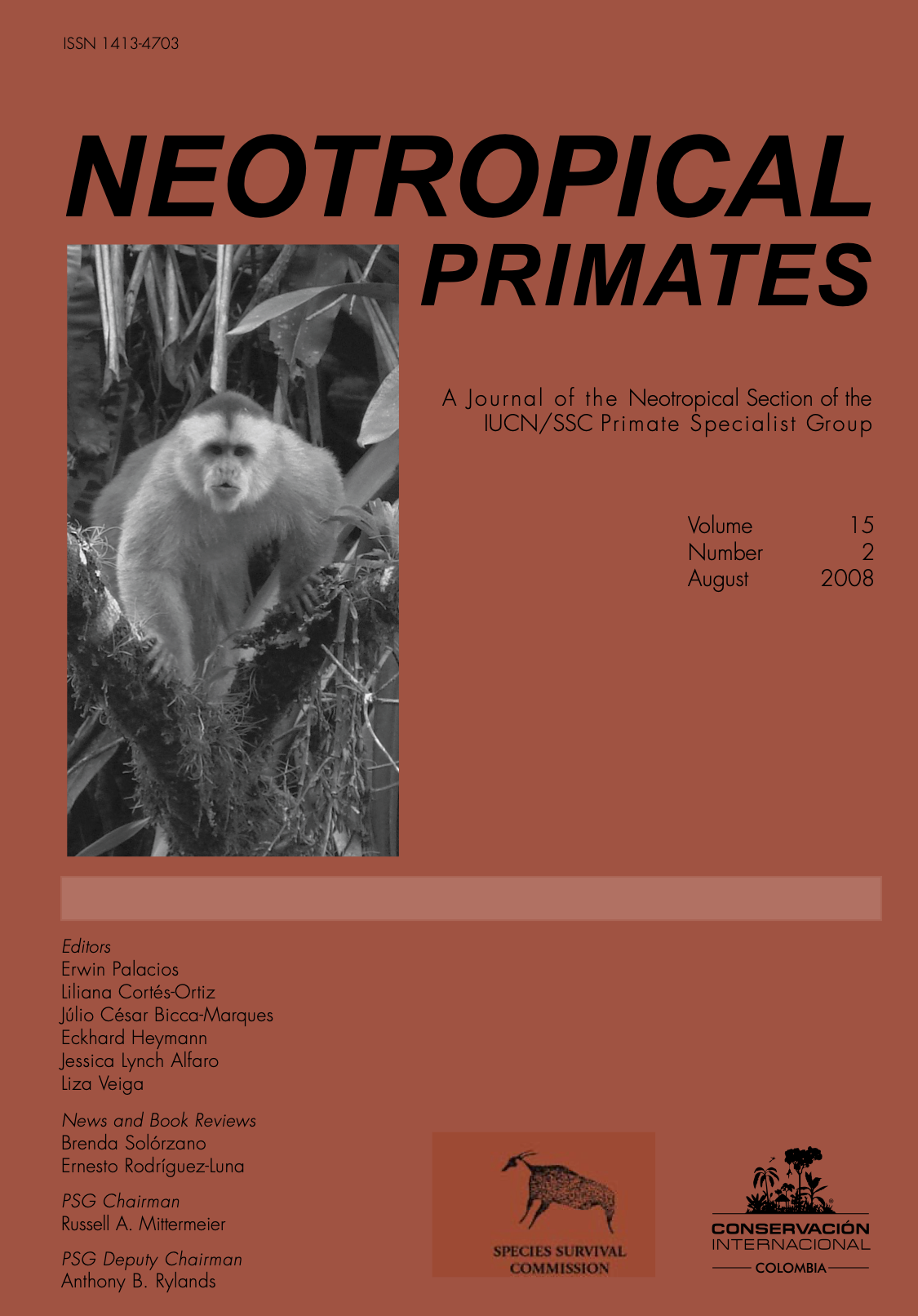Seed predation of Mabea fistulifera (Euphorbiaceae) by northern muriquis (Brachyteles hypoxanthus)
DOI:
https://doi.org/10.1896/044.015.0202Keywords:
Plant-herbivore interaction, seed predation, food choice, fruit hardnessAbstract
Seeds are staple foods in the diets of primates with morphological and behavioral specializations for seed predation, but are considered a less important resource for most other primates. Here we report the first observation of seed predation by northern muriquis (Brachyteles hypoxanthus). Twenty-four Mabea fistulifera (Euphorbiaceae) seed eating events were observed during a systematic study of two groups of northern muriquis in an Atlantic forest fragment in southeastern Brazil in July 2003, accounting for 2.9% of 836 feeding records during this month. Only unripe seeds were consumed in all records. The absence of Mabea fistulifera seeds in any of the 102 fecal samples examined suggests that the seeds were predated. Analyses of 47 fruits of Mabea fistulifera collected in different stages of ripeness in June 2004 indicated that fruits at earlier stages of ripeness were significantly softer than ones of later stages, implying that fruit hardness made their seeds unprofitable to these non-specialized seed predator monkeys.

Downloads
Published
Issue
Section
License

This work is licensed under a Creative Commons Attribution-NonCommercial-ShareAlike 4.0 International License.


